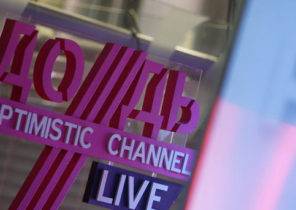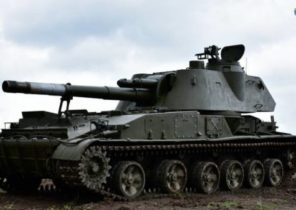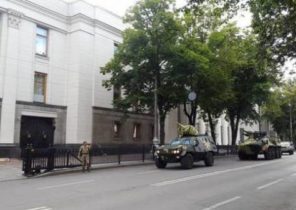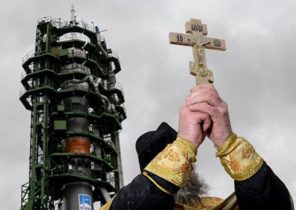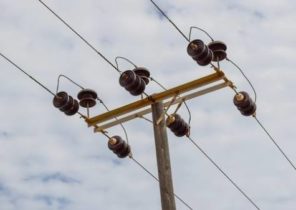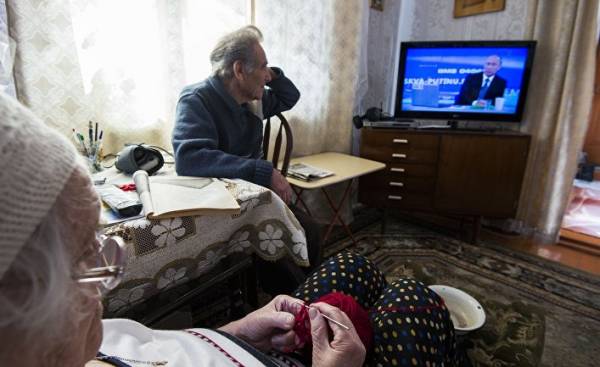
When Russian President Vladimir Putin will meet this week with his colleague Donald trump in Hamburg at the summit of “Big twenty”, he will speak to them not from a position of economic strength. It should be recognized that, despite the sharp drop in oil prices, which began three years ago, Russia managed to avoid a deep financial crisis. But even after two years of deep recession in the Russian economy there has been a slight rise, the future does not look so promising as it saw the country’s leadership five years ago. And if not to undertake serious economic and political reforms, this does not Bode well — Putin will not be able to implement its ambitious strategic plans in relation to Russia.
Back in 2012, when, during a banking conference in Moscow, Putin appeared on stage with a Nobel laureate economist Paul Krugman (Paul Krugman), it seemed that the Russian economic crisis of 1998 were in the distant past. With oil prices above 100 dollars per barrel in the state Treasury the money was enough. Why Putin could proudly oppose a state budget surplus of Russia’s budget deficit in Western countries caused by the recession. He obviously got pleasure from the fact that the Russian audience heard Krugman, according to which the Western democracies had suffered a serious setback after failing to overcome the global financial crisis.
At another plenary session of the Russian scientist-economist Sergei Guriev (which was subsequently forced to leave the country) claimed that it is not necessary to hope for the diversification of commodity-dependent economy of Russia as long as such institutions as the courts remain weak. Too many key decisions were attributed to one person. Speaking at the same session, I emphasized that without fundamental reforms, a sharp fall in world energy prices can cause serious problems.
This decline was inevitable: the price of oil fell from $ 110 per barrel in February 2012 (for Brent crude in Europe) to $ 27 in 2016. Even today’s price (less than $ 50 in early July 2017) more than half below the maximum level achieved in 2011-2012. For the country, the lion’s share of export revenue depends on sales of oil and natural gas, the price collapse is a devastating blow, negatively affecting the entire economy.
The fact that Russia escaped the financial crisis, surprising. This is largely due to the efforts of the Central Bank of Russia. No wonder Elvira Nabiullina, Bank of Russia Chairman, was twice awarded the international prize as the best head of the Central Bank.
But all the hardships, all the costs associated with the settlement of the crisis fell mainly on consumers because of the falling value of the ruble against the dollar by approximately 50%. Real wages and consumer demand fell sharply. As I said one Russian, before going to the supermarket, he used to take to buy a thousand rubles and brought home two packages, and now with the same spending he comes home with one.
The shock to the real economy was very strong. In Russia in 2015-2016 years, there has been a decline in production, comparable to the decline that occurred in the United States during the financial crisis of 2008-2009. But GDP as a whole has made in Russia of about 4%. Many firms went bankrupt, and in 2016, according to the International monetary Fund, nearly 10% of all Bank loans were problematic (this figure, which, of course, not adequately reflect the seriousness of the situation).
In many cases, banks have decided that instead of having to incur losses or to compel the company, having regard in political circles, to bankruptcy, they will provide additional loans. However, along with this the Central Bank of Russia has taken decisive steps to force small banks to raise capital and to write off bad loans (on which European politicians take an eternity). And despite active lobbying by powerful oligarchs, the Russian Central Bank maintained high interest rates to curb inflation, which reached more than 15%. Since then it has fallen almost to 4%.
Of course, Western sanctions — especially restrictions in the banking sector — has exacerbated the situation. But the media usually exaggerate this component of the economic problems of Russia. Affected all countries, largely dependent on energy exports — especially those which, like Russia, has failed to diversify its economy.
According to the global resurgence of populism, in any Western democratic country to cope with the economic collapse of this magnitude, which is going through Russia, it would be politically extremely difficult. Putin is still able to tightly control the situation and, in all probability, will be able to easily arrange a convincing victory in the presidential elections in March 2018.
A powerful Russian state media is able to make Western sanctions the scapegoat, justifying their mistakes and blunders of the authorities. They can instantly provide support for the adventures of the authorities abroad such as the annexation of the Crimea, military intervention in Syria and interference in U.S. elections. The majority of Russians, which are constantly manipulated by the Russian educational institutions and the media, are convinced that in the West the conditions are much worse (it is an exaggeration even in the era of “fake news”).
Unfortunately, such misinformation is hardly a good way of initiating reforms. And without reform and there is little reason for optimism about the long-term trend of economic growth in Russia, given the unfavorable demographic situation in the country, the weakness of its institutions and the absolute inability to diversify the economy. This is despite the fact that in this country are extremely talented and creative people.
What is the source of future growth? If the world will continue to move in the future c economy, little dependent on hydrocarbons, Russia will face an inevitable choice. She will either have to launch economic and political reforms or face even greater isolation from the West with sanctions or without them. And change this reality can not no meeting of the presidents of the USA and Russia.
